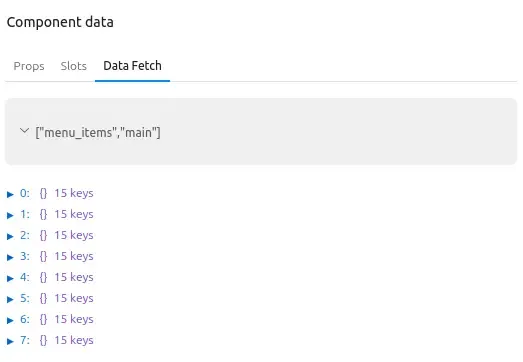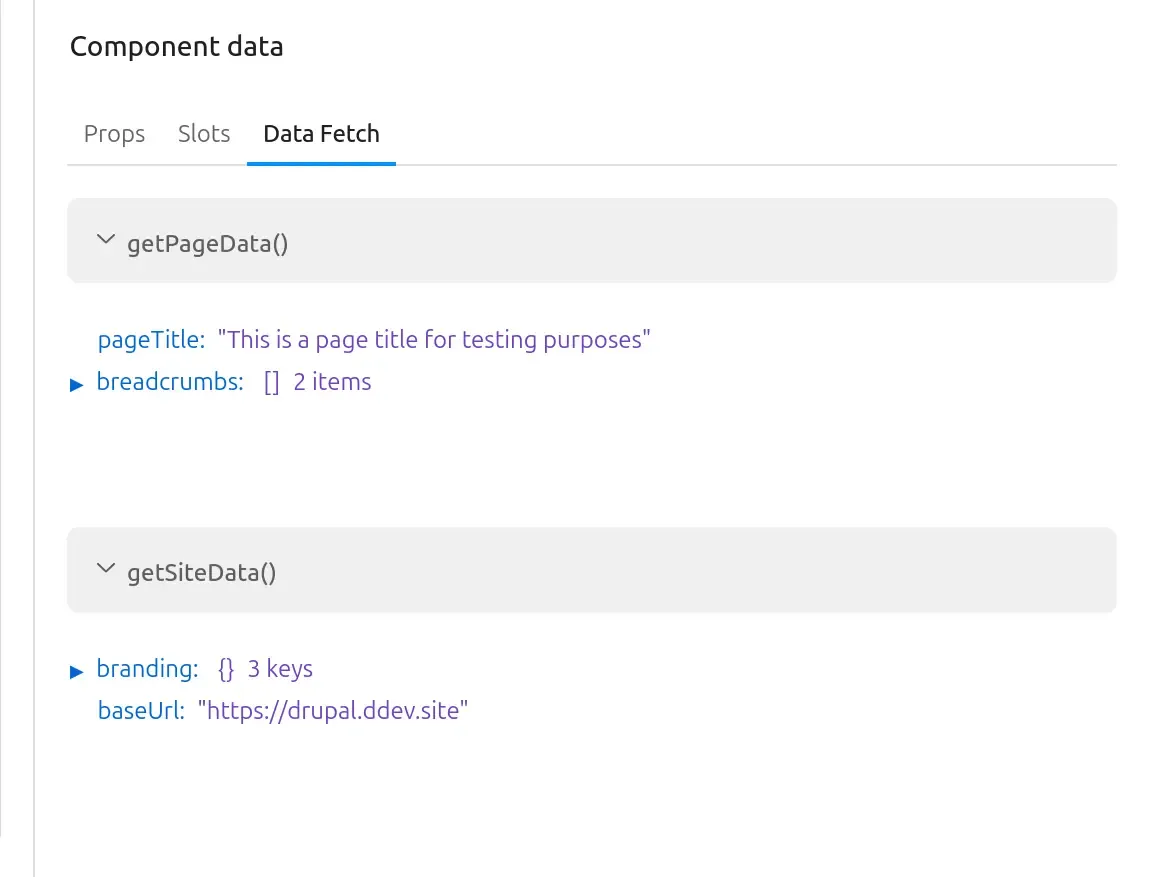Code components - Data fetching
SWR is provided as a native package and can be imported and used for general data fetching. Data returned will be shown in the “Data Fetch” pane under the component preview.
import useSWR from 'swr';
export default function Profile() { const { data, error, isLoading } = useSWR( 'https://my-site.com/api/user', fetcher, );
if (error) return <div>failed to load</div>; if (isLoading) return <div>loading...</div>; return <div>hello {data.name}!</div>;}
Drupal data
Section titled “Drupal data”Page and site data
Section titled “Page and site data”You can access information about the current page with the getPageData
utility. Results can be viewed in the Data Fetch pane below the component
preview.
import { getPageData } from '@/lib/drupal-utils';const { pageTitle, breadcrumbs } = getPageData();You can also access site information with the getSiteData utility
import { getSiteData } from '@/lib/drupal-utils';const { siteName } = getSiteData().branding;
JSON:API
Section titled “JSON:API”@drupal-api-client/json-api-client and the
associated parameter helper package
are also provided as native packages. JSON:API module
must be enabled to interface with this client.
You do not need to provide a baseUrl for the client, it will be configured automatically, as well as deserialization.
import useSWR from 'swr';import { JsonApiClient } from '@drupal-api-client/json-api-client';import { DrupalJsonApiParams } from 'drupal-jsonapi-params';const client = new JsonApiClient();
export default function List() { const { data, error, isLoading } = useSWR( [ 'node--article', { queryString: new DrupalJsonApiParams() .addInclude(['field_tags']) .getQueryString(), }, ], ([type, options]) => client.getCollection(type, options), );
if (error) return 'An error has occurred.'; if (isLoading) return 'Loading...'; return ( <ul> {data.map((article) => ( <li key={article.id}>{article.title}</li> ))} </ul> );}You can override the baseUrl and any default options:
const client = new JsonApiClient('https://drupal-api-demo.party', { serializer: undefined, cache: undefined,});Helper utilities
Section titled “Helper utilities”Utility functions for working with JSON:API and core APIs are also provided in
the @/lib/jsonapi-utils and @/lib/drupal-utils packages respectively.
Examples
Section titled “Examples”Given a node returned from JSON:API, return either the path alias or fall back
to /node/x path:
import { getNodePath } from '@/lib/jsonapi-utils';const articles = data.map((article) => ({ ...article, _path: getNodePath(article),}));
// Sort menu items from jsonapi_menu_items module into a tree with additional// _children and _hasSubmenu properties.import { sortMenu } from '@/lib/jsonapi-utils';const { data } = useSWR(['menu_items', 'main'], ([type, resourceId]) => client.getResource(type, resourceId),);const menu = sortMenu(data);Using the core linkset endpoint:
import { sortMenu } from '@/lib/drupal-utils';const { data } = useSWR('/system/menu/main/linkset', async (url) => { const response = await fetch(url); return response.json();});const menu = sortMenu(data);